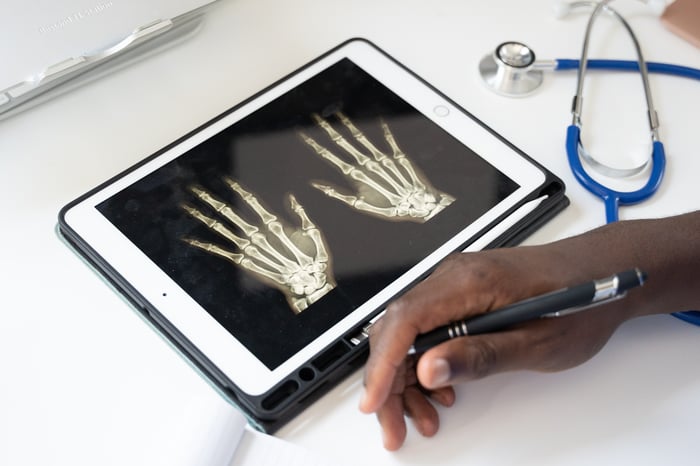In healthcare, outstanding challenges intersect with transformative possibilities when it comes to AI transformation. That said, the integration of AI and an emphasis on data-driven solutions is a necessity for healthcare organizations searching for a brighter future.
Let's dive right into the top barriers to entry for AI in healthcare — data security and privacy, regulatory landscapes, and interoperability — while exploring the implications of Generative AI in this context.

Data Security, Privacy, and the Call for Responsible AI
Hospitals, health services, insurers, and now — notably — pharma, life sciences, and digital health entities are grappling with the delicate dance of harnessing granular patient data while adhering to strict privacy standards, especially those stipulated by HIPAA. The need for Responsible AI becomes critical, ensuring the balance between extracting meaningful insights and fortifying the security of patient data.
With the growing influence of AI on patient care decisions, the urgency to prevent biases and misrepresentations that could lead to patient harm is clear. Global initiatives, exemplified by the new US AI regulations and the EU AI Act, underscore the need for commitment to Responsible AI practices in this current era as well as the months and years ahead.
Regulations: A Tightrope Walk Between Innovation and Oversight
At the intersection of government policies and regulatory frameworks like those enforced by the FDA, guidelines for good machine learning (ML) practices are shaping the landscape. The integration of AI Governance with data science and ML becomes imperative, striking a delicate balance between fostering innovation for AI applications and instilling regulatory trust.
This scrutiny ripples across the healthcare spectrum, affecting everything from pharma R&D and manufacturing to clinical operations and trials. Notably, as AI assumes a pivotal role in patient care decisions, the regulatory umbrella expands, sometimes even categorizing AI algorithms themselves as medical devices. This leap necessitates a profound technical maturity that many healthcare organizations are still striving to achieve.
A Frontier of Possibilities With Generative AI
Enter Generative AI. This subset of AI holds transformative potential, particularly in drug discovery for pharma and personalized medicine/treatment. The ability to generate novel molecules and predict their properties heralds a new age in pharmaceutical research. However, this surge in innovation raises ethical considerations.
It’s critical to ensure that Generative AI models are trained on diverse and representative datasets. Taking these measures prevents bias and helps produce equitable healthcare outcomes. It is also worth noting that these models may need to become increasingly domain-intelligent in medical ontologies and biology.
As the industry grapples with the implications of Generative AI, the imperative for responsible deployment and governance becomes even more pronounced.
Interoperability: Streamlining Connectivity in the Healthcare Tapestry
Efforts to standardize data sources and connections aim to weave a seamless tapestry of interoperability. There are massive efforts underway to help standardize data sources and data connections like FHIR and OMOP. However, this task extends beyond AI adoption — it requires a commitment to the nitty-gritty of data ETL processes and manipulation. Standardizing data formats stands as a linchpin, allowing disparate systems to communicate effortlessly and share information.
Achieving interoperability is not just a checkbox for healthcare organizations but must be a strategic commitment to creating a unified environment that fosters collaboration and drives innovation.
The Road Ahead of Us
In conclusion, the fusion of AI (inclusive of Generative AI) with healthcare is a journey not without challenges but full of possibilities. A collaborative and responsible approach becomes the compass guiding this transformation as the industry pioneers create innovative applications of Generative AI, grapple with stringent regulations, and strive for interoperability.
The future of AI in healthcare will not just be for efficiency gains but for a major shift in patient care, marked by Responsible AI practices, regulatory adherence, and a more seamless exchange of information that propels the industry with its life-changing and patient-saving practices, forward.





